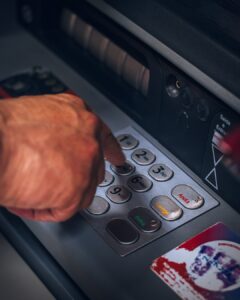How to Build a Strong Financial Model for Your Forex Brokerage Business Plan
Starting a Forex brokerage business can be a lucrative venture, but it requires careful planning and a solid financial model to ensure long-term success. A well-constructed financial model is essential for understanding the financial viability of your business and attracting potential investors or partners.
In this article, we will guide you through the process of building a strong financial model for your Forex brokerage business plan.
1. Understand Your Business Model:
Before diving into the financial aspects, it is crucial to have a clear understanding of your business model. Determine what services you will offer, such as trading platforms, account types, and additional features like educational resources or market analysis. Identify your target market and competitive advantage. This foundation will help you make accurate financial projections.
2. Revenue Streams:
The primary source of revenue for a Forex brokerage business is through commissions or spreads. Calculate the average commission or spread per transaction and estimate the number of transactions you expect per month. Additionally, consider other potential revenue streams such as account maintenance fees, software licensing fees, or partnership programs.
3. Operating Expenses:
To build an accurate financial model, you need to identify and estimate all your operating expenses. These may include employee salaries, rent, technology infrastructure, regulatory compliance costs, marketing expenses, and customer support. Research industry benchmarks to ensure that your estimates are realistic.
4. Capital Requirements:
Determine the initial capital requirements for setting up your Forex brokerage business. This includes expenses like legal and licensing fees, technology infrastructure, liquidity providers, and marketing. It is essential to have enough capital to cover start-up costs and sustain the business until it becomes profitable.
5. Market Analysis:
Conduct a thorough market analysis to understand the potential market size, growth rate, and competition in the Forex brokerage industry. This information will help you estimate the number of clients you can attract and the average trading volume per client. Use this data to make realistic revenue projections.
6. Client Acquisition and Retention:
Client acquisition and retention are crucial factors in the success of a Forex brokerage business. Estimate the cost of acquiring new clients through marketing channels like search engine marketing, social media advertising, or affiliate programs. Additionally, consider the average lifespan of a client and the measures you will take to retain them.
7. Risk Management:
In the Forex brokerage industry, risk management is vital. Identify the risks and potential losses that your business may face, such as market volatility, regulatory changes, or cybersecurity threats. Develop strategies to mitigate these risks and estimate the potential impact on your financials.
8. Financial Projections:
Based on the information gathered above, build a financial model that includes income statements, balance sheets, and cash flow statements. Project your revenue, operating expenses, and net profit for at least the first three years of your business. Consider different scenarios, such as conservative, base, and optimistic, to understand the potential outcomes.
9. Sensitivity Analysis:
Conduct a sensitivity analysis to understand how changes in key assumptions, such as trading volume, average commission, or marketing expenses, can impact your financials. This helps identify potential risks and opportunities, allowing you to make informed decisions.
10. Review and Refine:
Periodically review and refine your financial model as you gather more data and insights into your business. Adjust your assumptions based on the actual performance and market conditions. This iterative process will help you build a robust financial model that accurately reflects your Forex brokerage business.
In conclusion, building a strong financial model is crucial for the success of your Forex brokerage business plan. It provides a comprehensive understanding of the financial aspects of your business and helps attract investors or partners. By following the steps outlined in this article, you can construct a solid financial model that will guide your decision-making and set your business on the path to success.





